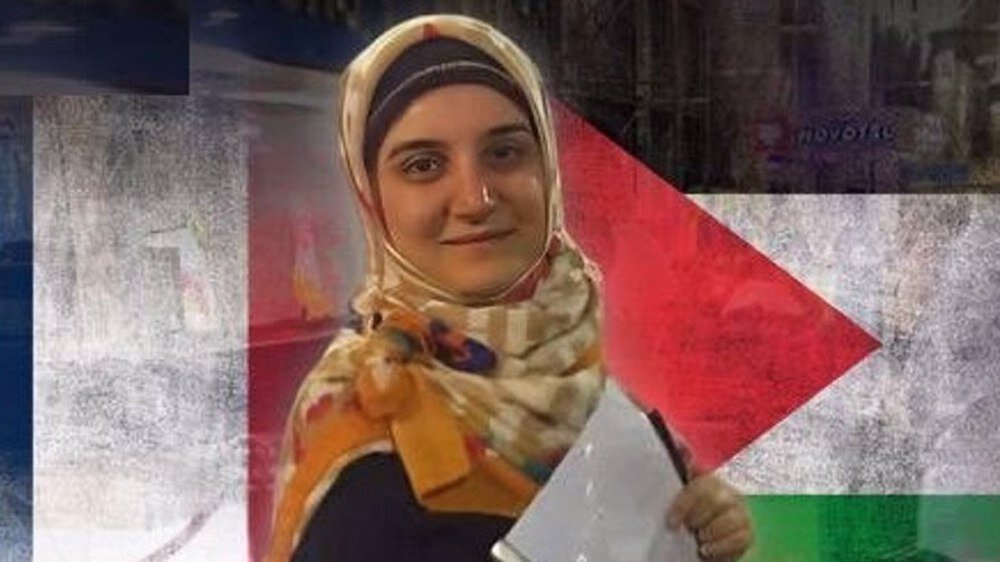MADRID – The French government has remanded Iranian citizens living in the country, publicly expressing support for Palestine and accusing the rights agencies they described as genocide, which was carried out by the Israeli government in the Gaza Strip.
Mahdieh Esfandiari, 39, has lived in France for the past eight years and worked as a translator. Alongside her, another individual whose identity was not disclosed, was arrested on similar charges. Authorities have not made clear whether the two jointly managed social media accounts or operated independently during the investigation.
According to the Paris Prosecutor’s Office, the investigation began in November 2024 and focused on several active accounts on platforms such as X (formerly Twitter) and Instagram. Prosecutors viewed the content published on these platforms as instigating terrorism and the spread of hate speech based on religious or ethnic basis.
Radio France International reported that activities on these accounts attracted the attention of the Ministry of Home Affairs on October 7, 2023, about three weeks after Hamas attacks on the occupied territories.
For several weeks, there was no official information about Esfandiari’s whereabouts. With no further news released, Esfandiari’s family warned Iranian authorities and urged the Iranian Foreign Ministry to begin following the incident through diplomatic channels.
Esfandiari disappeared in early March 2025 with no traces. The institutional silence from the French side raised concerns in Tehran. Ultimately, through diplomatic efforts, the Iranian government was able to confirm that she was under French police control, but details of her case remained vague and limited.
On April 12, Weekly Le Point, France, revealed that after almost a month of silence, French authorities finally released information on Esfandiari’s legal situation.
Esmail Baghey, a spokesman for Iran’s Ministry of Foreign Affairs, spoke publicly to the incident on March 10th. “Unfortunately, Iranian citizens have been informed that they had disappeared in French territory a few days ago.
Baghaei added that the previous day there was a conversation with the French embassy in Tehran, and that the consular department of the province had “continuously” followed the incident. “We hope to receive specific information as soon as possible to alleviate concerns in her family,” he said.
A week later, on March 17th, the spokesman provided an update. “As for this Iranian citizen’s disappearance, our efforts unfortunately did not have immediate results as the family had no news about her for 12 or 13 days.
Baghaei further emphasized that the reason behind her arrest is still unknown. “We understand that this respected woman is an activist supporting the Palestinian people and clearly published content expressing solidarity with the oppressed Gaza population,” he concluded.
This is not an isolated incident. In the name of secularism, presented as a guarantee of neutrality between religion and politics, many European democracies are increasingly reinforcing their attitude towards public expressions of sympathy with the Palestinian cause, especially when such expressions come from Muslim citizens. As anthropologist Sabah Mahmoud warned, secularism is not fair. Rather than ensuring equality of voices in public settings, it serves as a disciplinary device that defines which forms of suffering are easy to read and which ethical commitments are considered acceptable.
Within this framework, pro-Palestinian activism is read not as a legitimate political stance, but as a potential threat to the liberal democratic order. The logic played in the case of Mahdieh Esfandiari, freedom of expression is protected when it coincides with Western geopolitical priorities, but the language of national security is invoked when the voice denounces the Israeli regime or expresses solidarity with the victims of Gaza.
However, the most troublesome thing in Esfandiari’s case is to uncover the deeper structural mechanisms of exclusion rather than the obvious asymmetry of how democratic principles apply. French theologian Gil Anigal calls this phenomenon “politics of blood.” This is a concept that explains how Western modernity organized systems of attribution and exclusion. For Andjar, blood goes beyond biological aspects, acts as an epistemological and political category, part of the political community, and shapes the religious, racial and national hierarchy that determines who must remain outside its boundaries.
Rather than truly separate religion and politics, secularism replicates this distinction and reinforces it as a mechanism of control. People who do not conform to the “ideal citizen” type, like Madie Esfandiari, marked by her origins, her Muslim identity, and her political views, are systematically driven out into the edges of democratic spaces.
In this context, secularism becomes an instrument of biopolitical management. It controls who appears and appears in public places, and determines which forms of audio deserve protection and which ones need to be silenced. Solidarity with Palestine is therefore recognized as a fundamental form of opposition, especially when spoken up by someone identified as Muslims. This is a challenge to the dominant narrative that threatens to deepen religious and geopolitical hierarchies into liberal orders.
This exclusion device is not merely a theoretical abstraction. It has a concrete effect. Esfandiari’s detention, her initial loss of failure, and long-term silence from the French authorities reveal how secularism acts as a punitive device under counter-terrorism rhetoric.
Ultimately, what is at stake here is not merely freedom of expression, but the possibility of clarifying alternative political subjectivity. This is a way of living in a world outside the logic of identity imposed by modern nation-states based on property, cultural homogeneity, and symbolic control. It is this terrain that Anijar’s criticism reaches its full importance. Blood politics are not merely a minority, but a structure of forces that unite violence, exclusion and sovereignty.
Rather than anomaly, Mahdieh Esfandiari’s case bares the limitations of liberal democracy to the limitations of free democracy when faced with discourse that challenges moral and political hegemony. What is revealed is not the strength of secularism as a principle of inclusion, but the vulnerability as a framework of coexistence. And with this, the liberal project itself has emerged as a promise of failed universalism. We are unable to accommodate the numerous voices and experiences that define our modern world.

